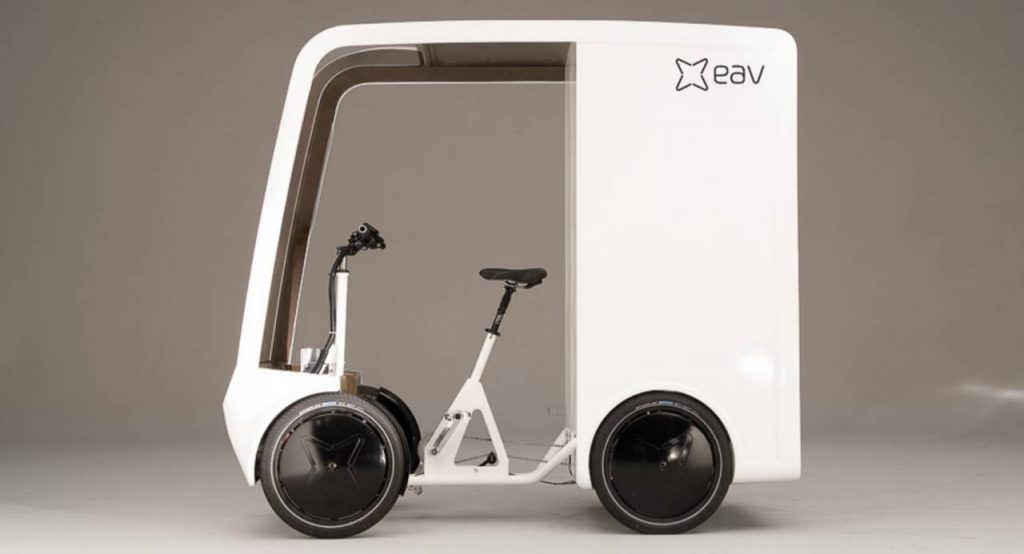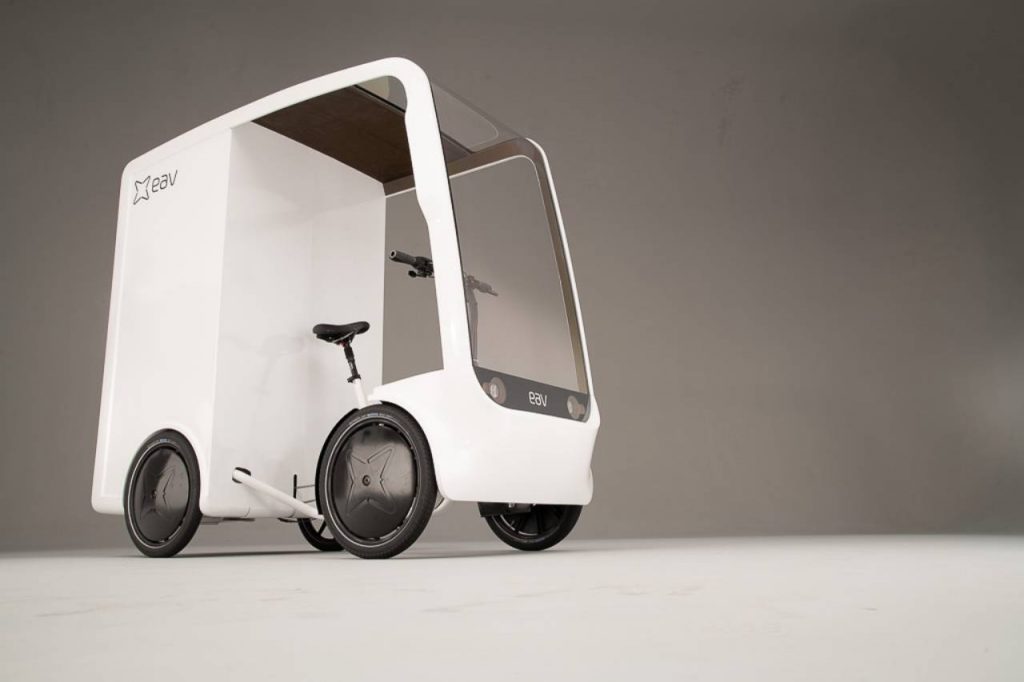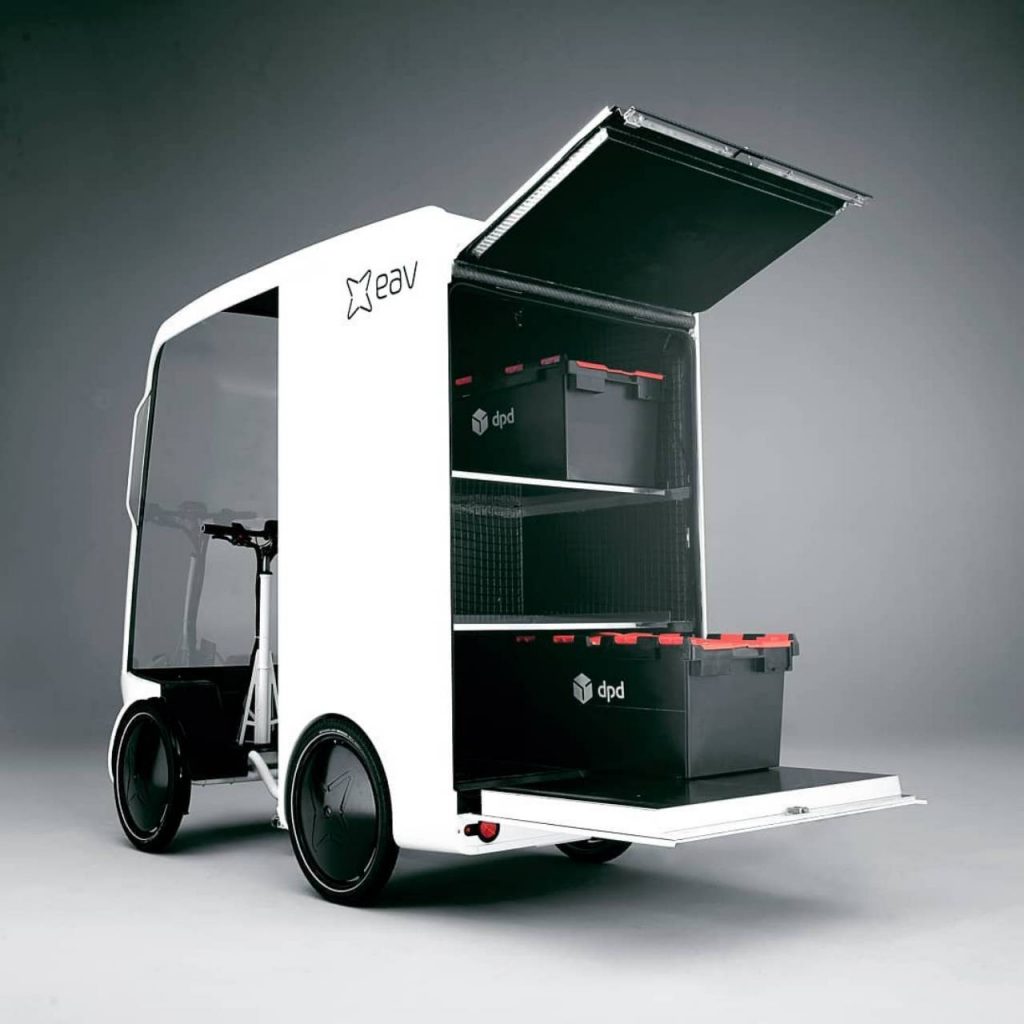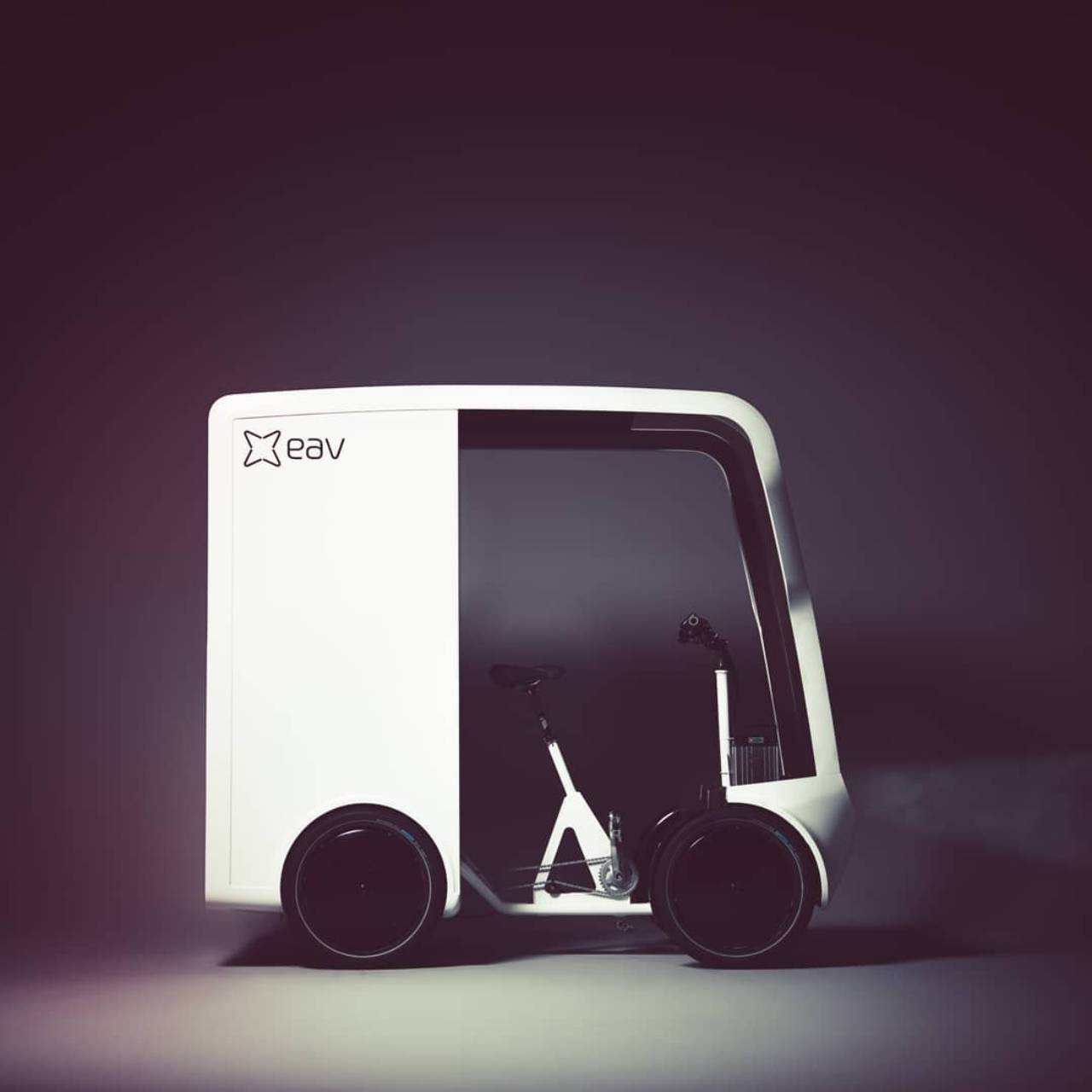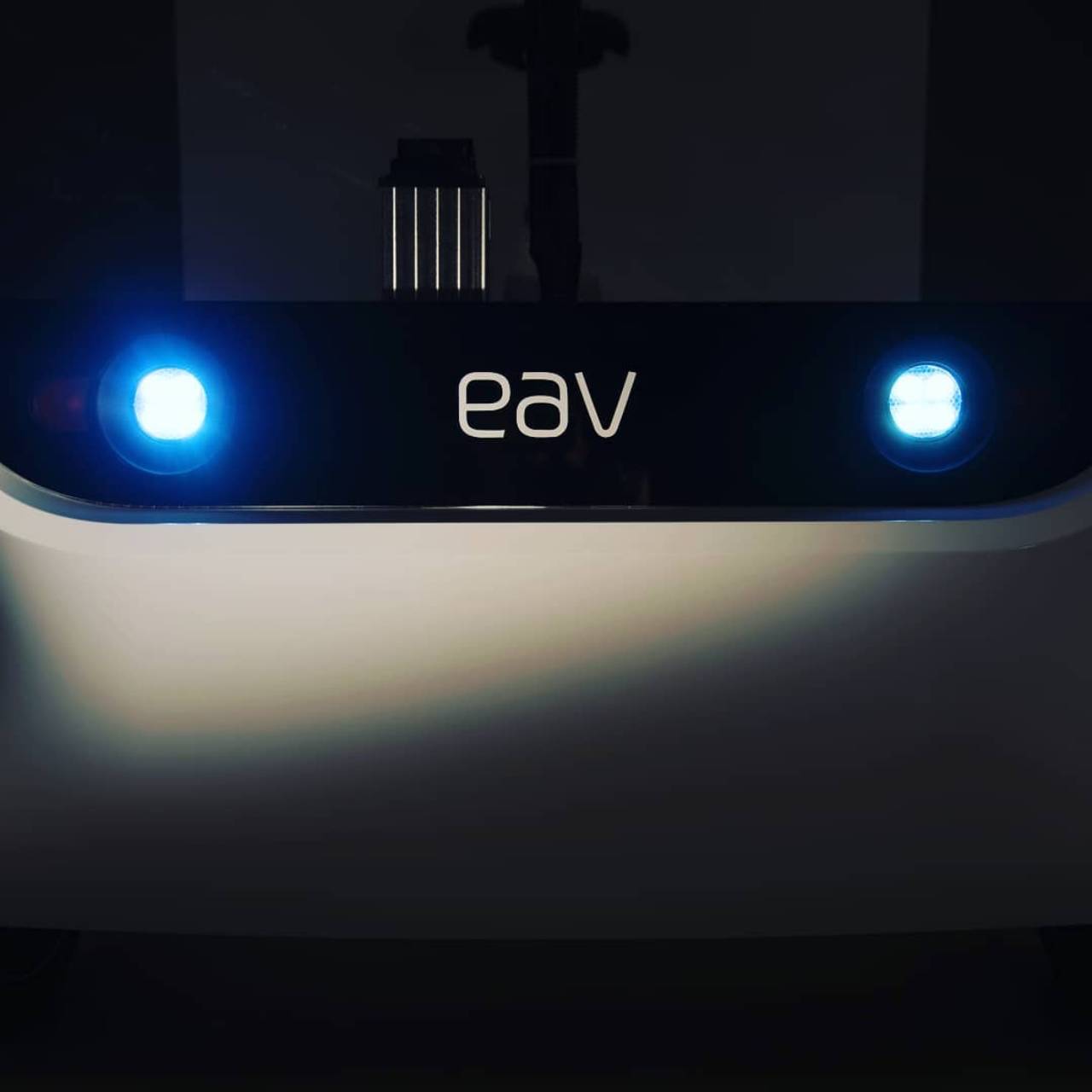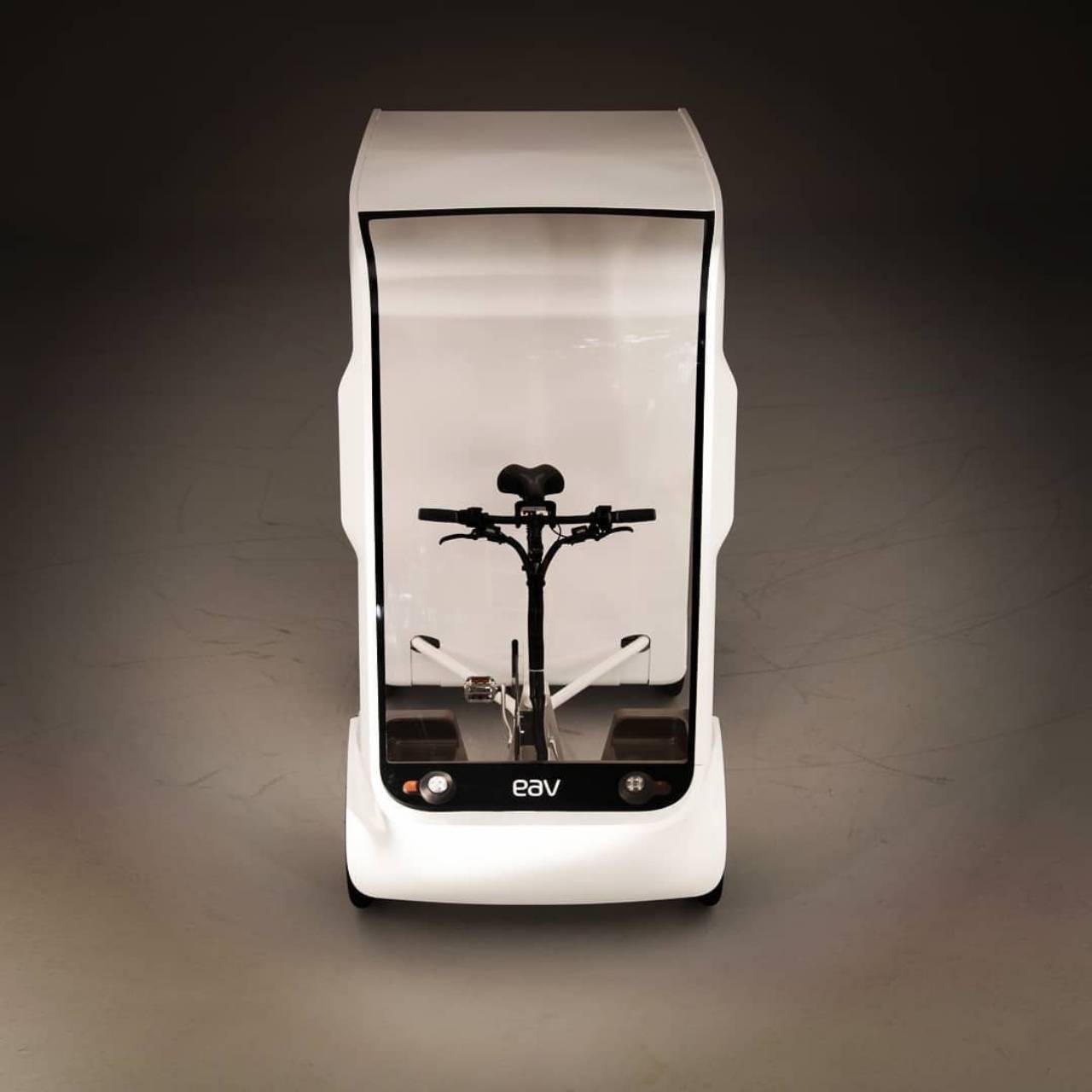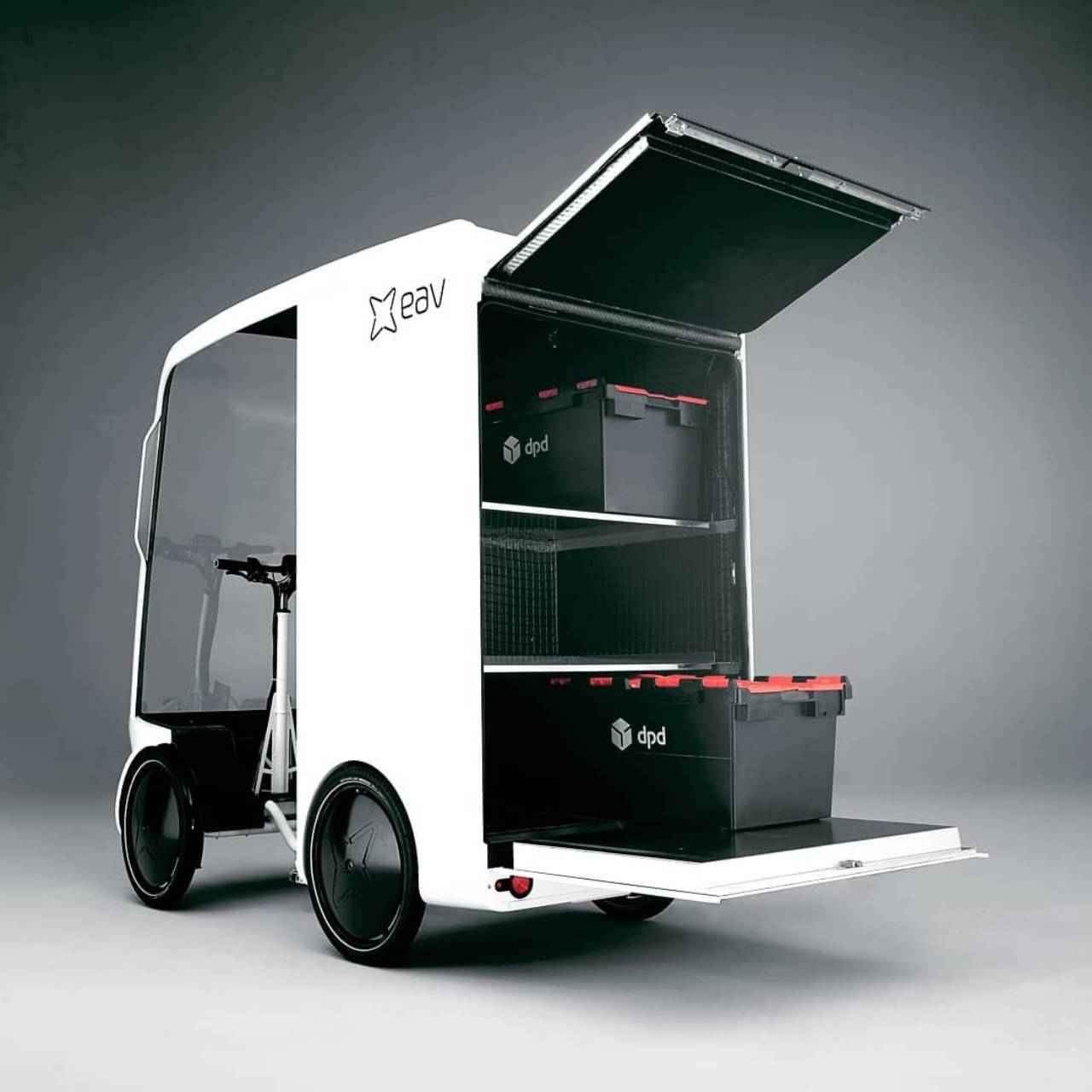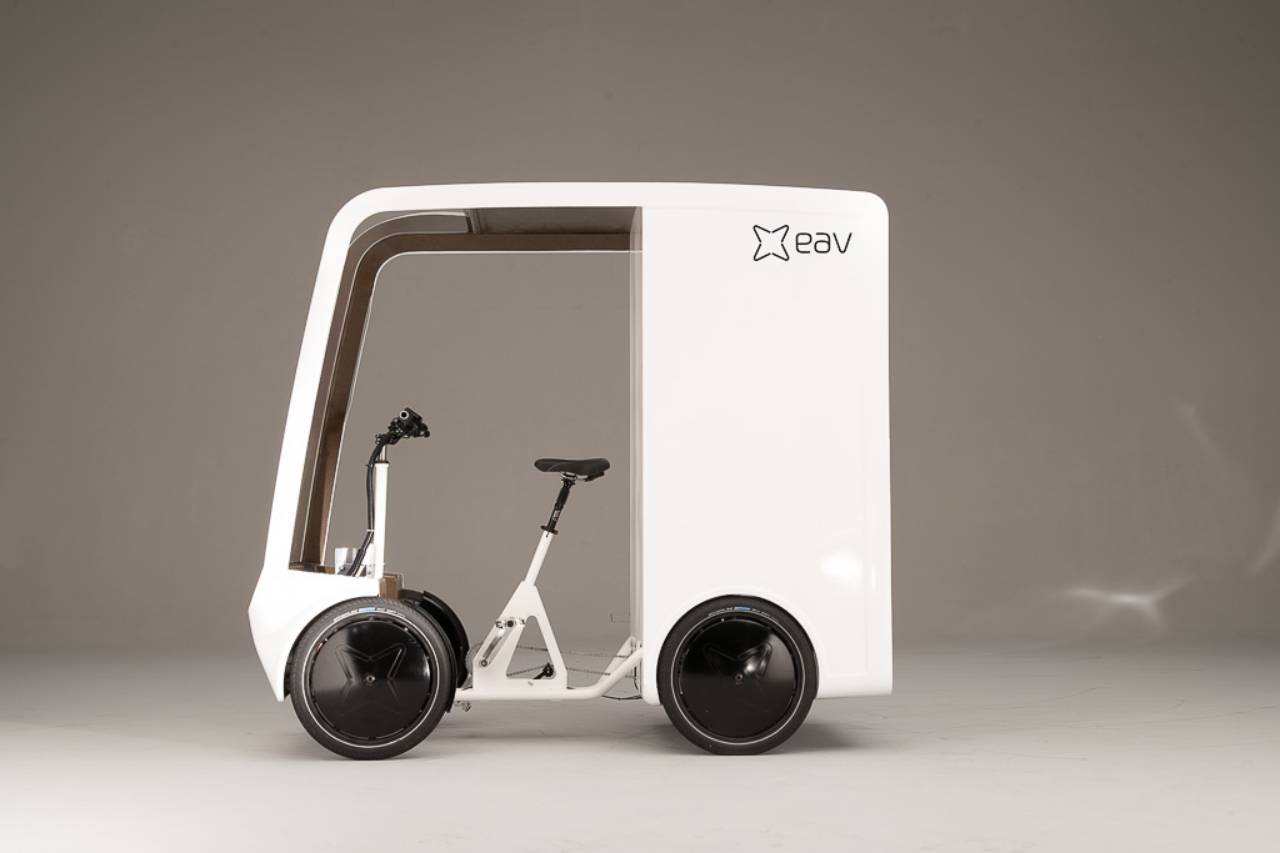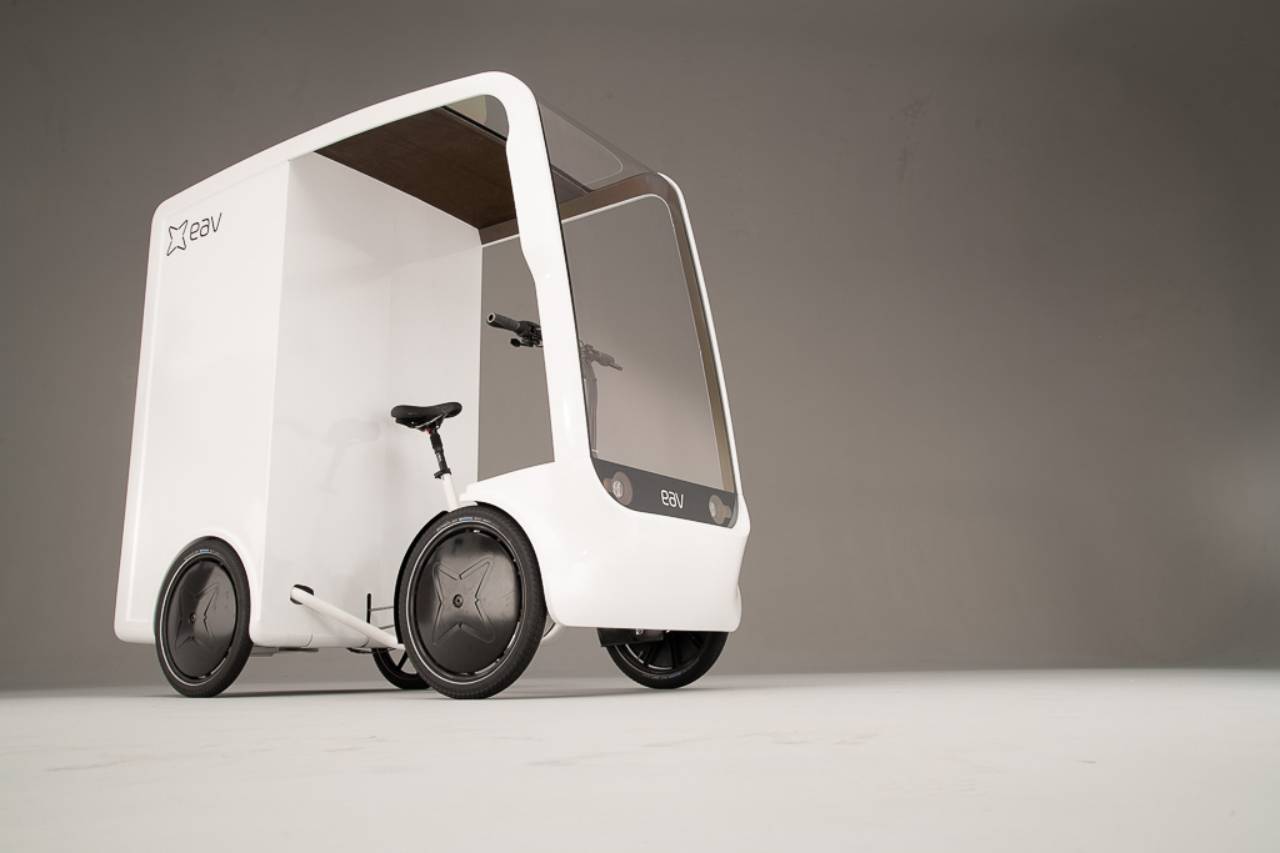Electric Assisted Vehicles Limited (EAV) is a British startup that aims to find solutions to urban congestion and pollution — and, of course, make some money in the process, obviously.
Their latest creation is called the EAVan and it has an interesting philosophy. At its core, the EAVan is an eCargo bike that operates under the current regulations for electric bicycles. However, it’s also a van as the bodywork built on top of the e-bike can attest.
According to EAV, the vehicle is engineered “down” from a van rather than “up” from a bicycle. “Getting people out of vans and onto eCargo bikes isn’t easy if they think it’s going to be an awful experience. Being exposed to the elements or being low to traffic isn’t going to appeal to anyone,” explains Adam Barmby, Technical Director and Founder of EAV.
Also Read: VW Cargo e-Bike Punches Above Its Weight With 463-Pound Payload
That’s why the company started with the idea of the outer body of a light commercial van and then added the electric pedal-assist propulsion system. The EAVan has a driving range of up to 60 miles (96 km/h) or further if the owner adds more batteries.
Fitted with a thumb throttle that the company calls an “e-nertia” switch, the vehicle can accelerate up to 3 mph (5 km/h) on its own. After that, turning the pedals provides enough power to reach a maximum assisted speed of 25 km/h (15 mph) with a payload of up to 120 kg (264 lbs). EAV says the amount of assistance can be adjusted and the vehicle regenerates power into the batteries under braking and free-wheeling. The interchangeable batteries can be charged using a standard household plug.
Built on a “Cloudframe” chassis design, the vehicle has been designed to be fully modular. For example, it can be used as a delivery van, a pickup, as well as a paramedic or security patrol vehicle. Furthermore, the chassis and body cab can be evolved into both longer and wider versions, opening up new possibilities for building larger vans and Personal Transport Vehicles (PTVs) including taxis, minibuses and even passenger cars. The company believes it can bring such versions to market within the next five years.



